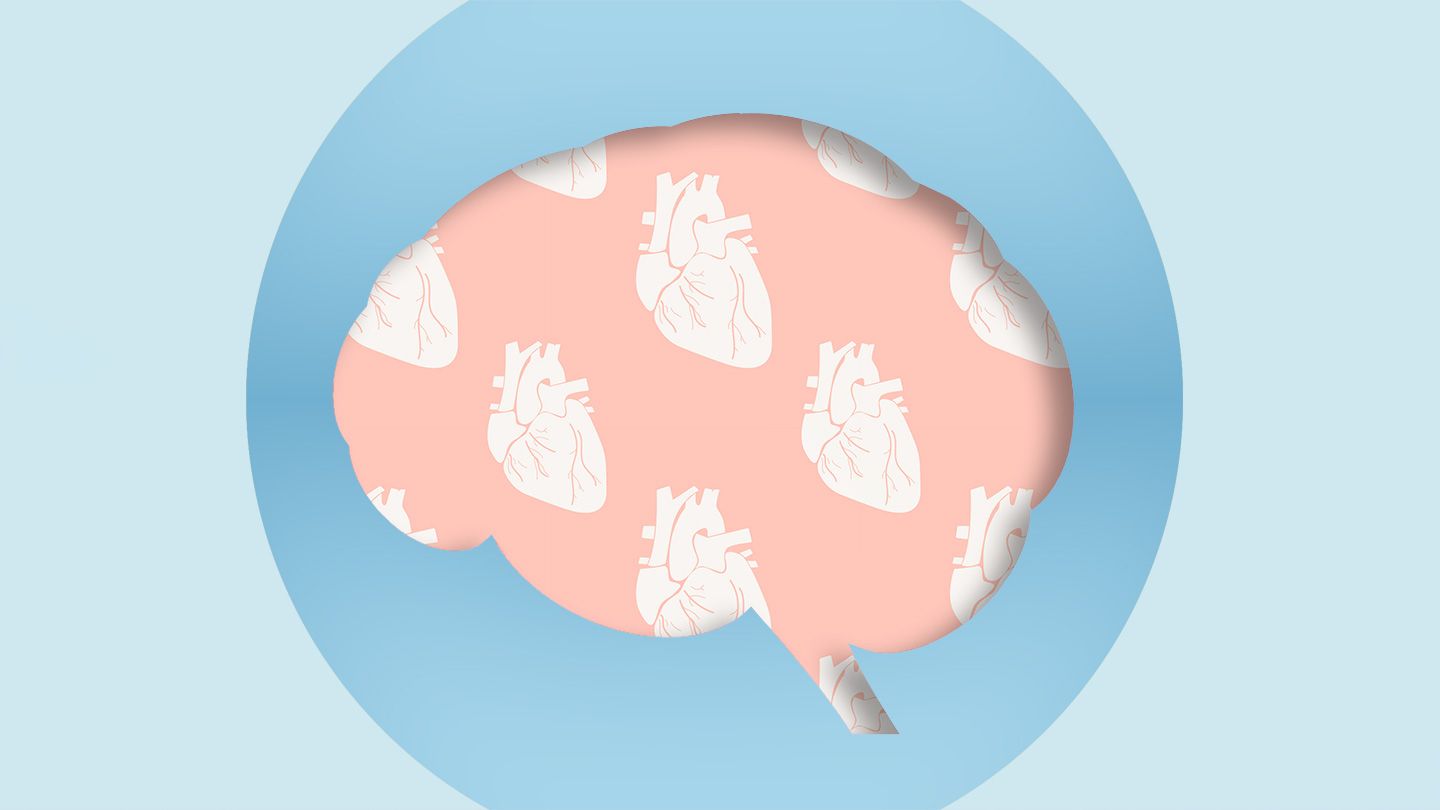“Heart disease and brain health are deeply interconnected, and this relationship is bidirectional,” says Fernando Testai, MD, PhD, lead author of the AHA statement and a neurology professor at the University of Illinois in Chicago.
“Heart diseases can lead to brain injury and, in return, damage to particular areas of the brain (as occurs in stroke) can result in cardiac disorders,” Dr. Testai adds. “Thus, by cultivating healthier hearts at a young age, we are protecting the brain, and vice versa.”
The new AHA scientific statement reviews the latest research examining the connections between cardiovascular health and brain health — including the risk for dementia, cognitive impairment, or neurological and psychological issues.
How Heart Health Impacts Brain Health
Heart failure, when the heart doesn’t pump blood as efficiently as it should, is associated with a 14 to 81 percent higher risk of experiencing cognitive impairment that affects language skills, memory, or executive function, according to the statement.
Atrial fibrillation, or afib, an irregular and often rapid heartbeat, is associated with a 39 percent greater risk of problems with memory or cognition, the statement notes.
People with heart disease are 27 percent more likely to have dementia than individuals with healthy hearts, according to the statement.
After a heart attack, up to half of survivors will experience cognitive decline, per the statement.
“These conditions can cause small blood vessels to stop working properly, cause inflammation, and lead to tiny bleeds in the brain,” says Yu Chen, PhD, MPH, a professor and chronic disease epidemiologist at the New York University Grossman School of Medicine, who wasn’t involved in the new statement.
“All of these issues reduce blood flow and affect brain areas important for thinking and memory,” Dr. Chen says.
How to Keep Your Heart and Brain Healthy
These are the things people need to focus on for optimal heart and brain health — and high scores — according to the AHA:
- Diet Closely follow a Mediterranean style eating pattern that includes whole foods, lots of fruits and vegetables, lean protein, nuts, seeds, and cooking with healthy oils like olive and canola.
- Exercise Aim for 150 minutes of moderate intensity exercise or 75 minutes of vigorous exercise each week.
- Tobacco Avoid all forms of nicotine — including e-cigarettes, as well as older forms of smoking like cigarettes and cigars.
- Weight Maintain a body mass index (BMI) of 18.5 to 24.9.
- Cholesterol Instead of focusing on total cholesterol, aim to reduce harmful fats in the blood such as triglycerides and low density lipoprotein (LDL) cholesterol.
- Blood Sugar Maintain healthy blood sugar levels, which can be checked with blood tests showing so-called hemoglobin A1C levels, a number that reflects average blood sugar levels over about three months.
- Blood Pressure Try to keep blood pressure below 120/80 millimeters of mercury (mmHg).
- Sleep Adults should aim for seven to nine hours a night.
“Heart disease and cognitive impairment share common risk factors like hypertension, obesity, and diabetes, many of which can be prevented through healthy lifestyles — regular exercise, weight control, a low-fat, low-sugar diet, and avoiding smoking,” Chen says. “These factors take decades to contribute to heart disease and cognitive decline, so early prevention is key.”



